Dark Knuckles: Causes And Treatment
Understand the possible underlying conditions to get the right line of treatment.
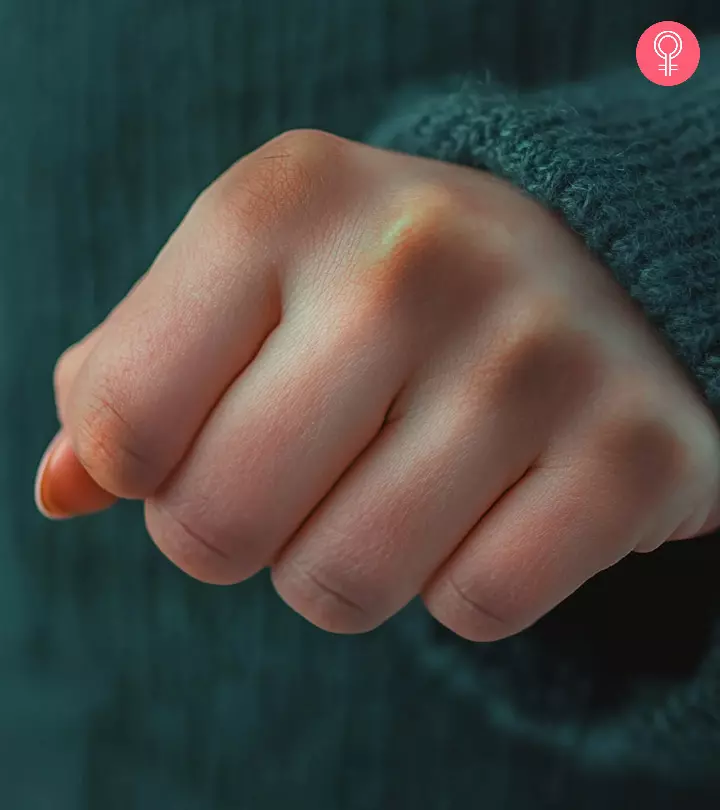
Image: Midjourney/ StyleCraze Design Team
If you have dark knuckles and are worried about them, you are not alone. Dark patches on the knuckles are quite common, especially in people with darker skin tones. This condition is not age-specific and may affect anyone. Though it is a harmless condition, dark knuckles can also indicate underlying medical conditions. So, it is important to understand the causes and treatment options to spot potential health issues beforehand, be aware, and take proactive steps.
If you have metabolic disorders like diabetes or are allergic to certain medications, you may get these dark patches on your knuckles.
Read on to know more about what causes these dark knuckles and how you can treat them.
In This Article
What Causes Dark Knuckles?
Dark knuckles can occur without any specific reason and may also be a symptom of certain medical conditions. Following are the common causes of dark knuckles:
1. Acanthosis Nigricans (AN)
Acanthosis nigricans (AN) is a skin condition that causes dark patches and velvety textures on your skin (1). It can affect the skin on folds and joints, including your knuckles. Although it is not an infection, it may cause itchiness and odor.
AN is more prevalent in people of Native American, African, and Hispanic backgrounds. Having a family history of AN and obesity can increase your risk of developing this condition.
Experts believe that the mutation of the gene responsible for the fibroblast growth factorsi A growth factor first discovered as a protein that boosts fibroblast production and has the potential to repair and regenerate tissues. may lead to AN (2). It can also be a warning sign for other conditions, including diabetes, hormonal imbalances, PCOS, or cancer. Additionally, it may be a side effect of contraceptives or cholesterol medications.
2. Diabetes
Experts believe there is a relationship between dark knuckles and diabetes. Darkening of the skin may signal the onset of diabetes. Prediabetes is a stage where the blood sugar levels are higher than the normal limit (3). Skin darkening is said to be, in most cases, the only warning sign. This is because altered levels of insulin in your body can result in hyperpigmented patches of skin, including the darkening of knuckles.

Recognizing this sign of prediabetes can aid in early intervention and management of diabetes.
Skin hyperpigmentation also reflects poor management of diabetes (4). In such a scenario, you will most likely require a change in your treatment approach.
3. Dermatomyositis
The dark spots on your knuckles may be the result of dermatomyositis. It is an inflammatory disorder affecting the muscles and skin. This chronic condition can cause skin rashes on the knuckles, face, chest, knees, and elbows. The color of these rashes varies from bluish-purple to red.
Although dermatomyositis is not curable, if detected early, the symptoms are manageable with proper treatment.
4. Polycystic Ovary Syndrome (PCOS)
Polycystic ovarian syndrome (PCOS)
is caused by an imbalance of hormones in women. It is more prevalent during the child-bearing age. One of the symptoms of PCOS is dark patches on the skin, often along the creases and joint folds (5).
5. Addison’s Disease
Addison’s disease is an uncommon disorder. It occurs when your body produces reduced levels of the steroid hormones cortisol and aldosteronei A steroid hormone made by the adrenal cortex that helps balance water and salt in the kidneys by retaining sodium and releasing potassium. .
According to a global survey, the prevalence of Addison’s disease is 0.6 per 100,000 of the population every year. The total number of people affected by this rare disease at a given time ranges between 4 to 11 individuals per 100,000 of the population.
 Did You Know?
Did You Know?Cortisol is vital when the body is under stress, and its low levels can be life-threatening. Symptoms tend to include fatigue, nausea, darkening of the skin, and dizziness. Skin darkening at the knuckles can be among the initial symptoms of Addison’s disease.
6. Scleroderma
Scleroderma is an autoimmune disorder
in which your body attacks your tissues and overproduces collagen. Collagen hardens and tightens the skin and other connective tissues. Redness of the skin on your hands and knuckles are some of the symptoms of scleroderma (6).
7. Vitamin B12 Deficiency
Dark spots on the knuckles can be a sign of a vitamin B12 deficiency (7). Treating this vitamin deficiency with adequate dietary supplements and modifications can get rid of the darkening.
8. Drug Reactions
Darkened knuckles can also be a side effect of certain medications. These include:
- Oral contraceptives
- Hormonal replacement therapy
- Glucocorticoidsi Steroid compounds that may be hormones or drugs that affect metabolism, reduce inflammation, and suppress the immune system.
- Anticoagulantsi Drugs used to reduce the risk of stroke and heart attack by disrupting the processes that form clots.
- Antibiotics, like tetracyclines
- Niacini A water-soluble B vitamin necessary for healthy skin and optimal functioning of the digestive and nervous systems. and nicotinic acid
- Insulin in injectable form
If you are taking any of these medications and develop darkened knuckles, consult your doctor. A change in the prescription may help get rid of the darkening skin.
9. Lifestyle Factors
Certain lifestyle choices can also contribute to dark knuckles:
- Overexposure to sunlight can stimulate melanin production, leading to hyperpigmentation in areas like the knuckles.
- Dehydration can cause the skin to become dry and flaky, which can accentuate hyperpigmentation.
- Repeated friction or irritation to the knuckles, such as from wearing tight-fitting gloves or jewelry, can lead to post-inflammatory hyperpigmentation.
- Exposure to certain chemicals, such as those found in some cleaning products or dyes, can cause skin irritation and discoloration.
By addressing these lifestyle factors, you can help prevent or reduce the appearance of dark knuckles.
If your dark knuckles have a sudden onset, they are most likely due to an underlying cause. Addressing the underlying cause is of utmost importance when it comes to treating dark knuckles. With appropriate treatment, in most cases, the skin darkening disappears.
Check out some treatment methods, including DIY home remedies, below.
Key Takeaways
- Dark knuckles are common, and it is a harmless condition, especially for people with dark skin tones.
- Topical use of green tea can help lighten dark patches on knuckles.
- Moisturizing your hands and applying sunscreen may prevent the onset of dark knuckles.
How To Lighten Severely Dark Knuckles
Tempting though it might be, avoid scrubbing or bleaching your knuckles. Scrubbing can prove counter-productive by removing the protective layer of superficial skin and increasing pigmentation. And, over-the-counter bleaches contain high concentrations of strong acids that can worsen skin darkening.
Instead, try the following ways to lighten your dark knuckles:
1. Medical Treatment For Dark Knuckles
When the cause of dark patches on the knuckles is an underlying medical condition, the first line of treatment involves medications or lifestyle changes per the diagnosis.
For metabolic disorders like PCOS or diabetes, weight control, diet modifications, and correct treatment can relieve darkened knuckles.
For a vitamin B12 deficiency, dietary supplements can give you immediate results.
In conditions such as Addison’s disease, hormone replacement therapy may be necessary for getting rid of hyperpigmentation.
You also need to apply sunscreen with SPF 50+ daily.
Chemical peeling under a dermatologist’s supervision is also beneficial for the lightening and darkening of knuckles.
2. Home Remedies For Dark Knuckles
The following home remedies may help you lighten the dark and uneven skin tone on your knuckles. They will, however, not completely clear your skin unless you address the root cause.
- Turmeric
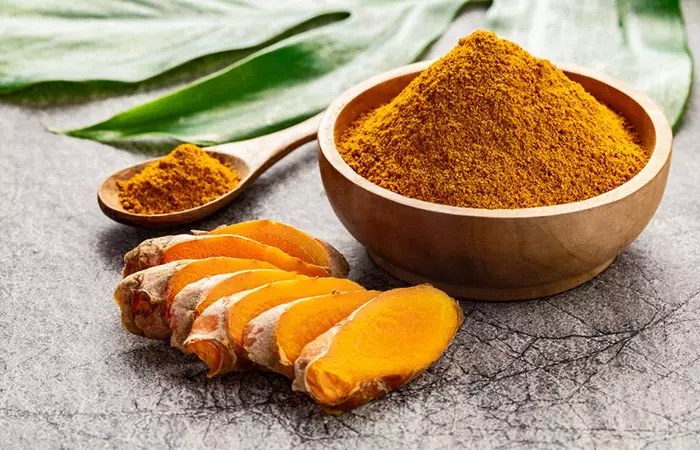
Turmeric contains curcumin, an active compound known for its skin-lightening property. Curcumin disrupts melanin synthesis, thus minimizing skin darkening (8). You can mix a small quantity of powdered turmeric in a bit of water and apply the paste to your knuckles for some time before washing it off.
- Green Tea
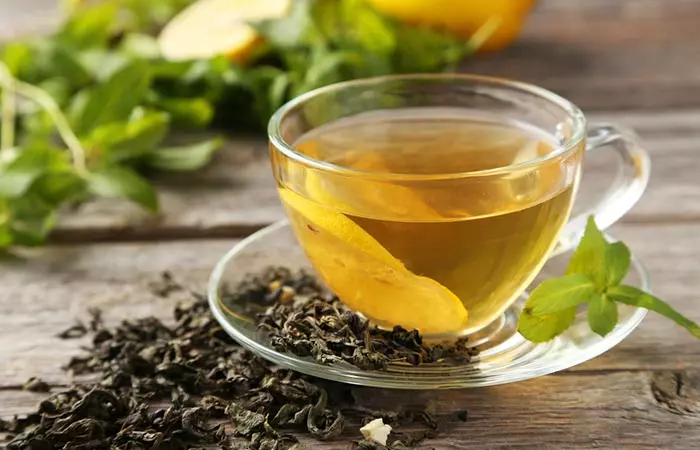
You can also try green tea to get rid of dark knuckles. Tyrosinase enzyme is essential for synthesizing melanin in your body. Green tea contains epigallocatechin gallate which inhibits tyrosinase. Therefore, regular topical use of green tea can help lighten dark knuckles (8).
You can make a green tea decoction for knuckle skin discoloration by steeping a green teabag or some green tea leaves in warm water. Apply this decoction on the darkened skin. Alternatively, you can apply a mix of green tea with milk and rose water to your knuckles. Do it for a few days for substantial results.
- Curd
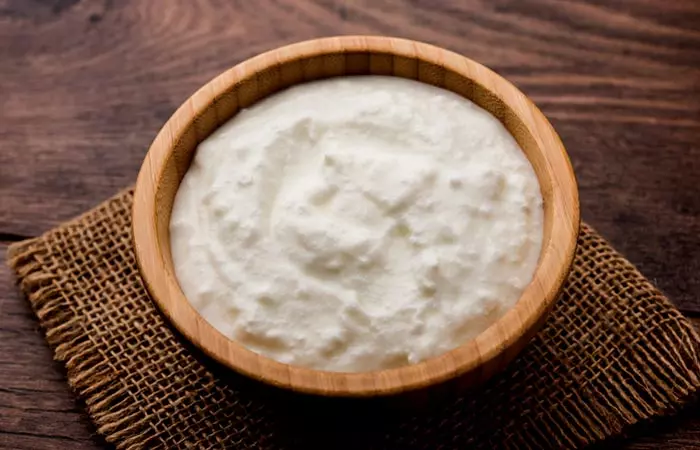
While there is limited research on this claim, curd is said to possess a potential skin-lightening effect due to its high lactic acid content. It is claimed to promote skin exfoliation, reduce inflammation, and also stimulate skin growth.
To reap the skin-brightening benefits of curd, you can apply it directly to your knuckles and leave it to dry for about 20 minutes. Then, wash it off with warm water.
- Vitamin C
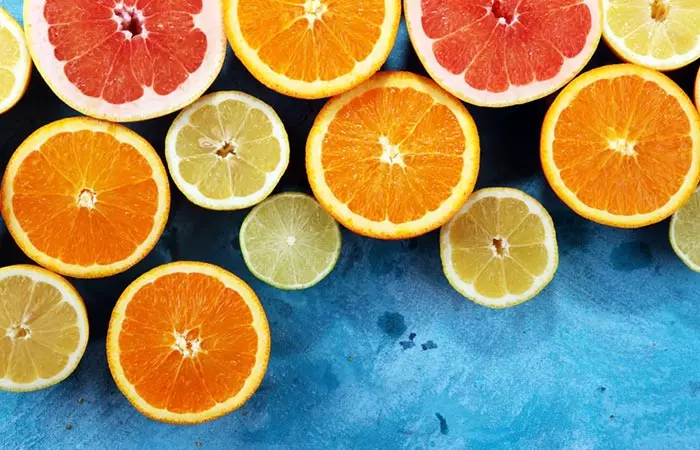
Vitamin C is a potent antioxidant that can prove effective against several skin problems such as hyperpigmentation. Studies show that vitamin C impedes melanin production (9). Thus, it may help lighten dark knuckles.
- Baking Soda
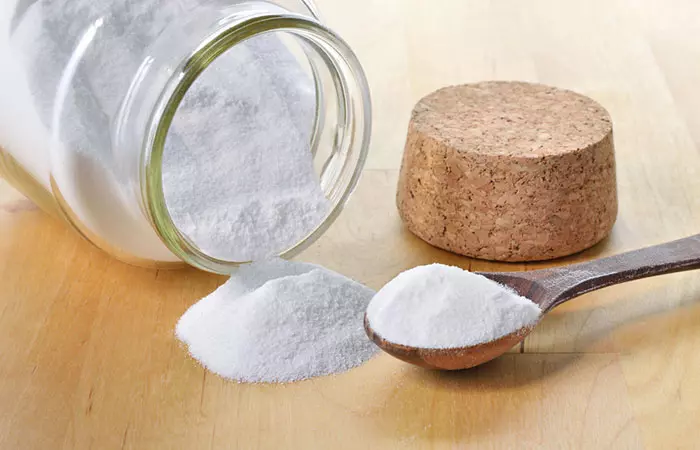
Baking soda is sometimes used as a natural exfoliant to lighten dark knuckles. Anecdotal evidence suggests that the exfoliating properties of baking soda may help remove dead skin cells and promote even skin tone over time, potentially reducing the appearance of darkened knuckles.
Mix baking soda with water, gently massage the mixture onto the affected area, and rinse it off.
- Coconut Oil
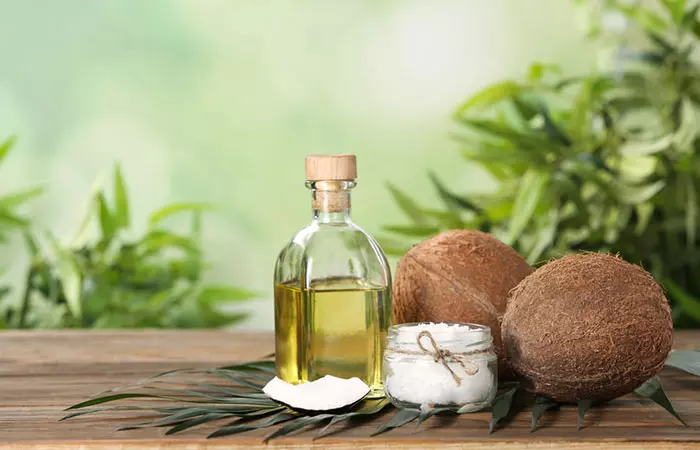
Anecdotal evidence suggests that the fatty acids and antioxidants in coconut oil may help reduce the appearance of dark knuckles. However, studies are warranted in this regard.
Apply a small amount of coconut oil to the affected area and massage it gently. Do this every day for the best results.
Naomi, a skincare YouTuber, shared how she uses lemon, baking soda, and sugar to get rid of dark knuckles. She says that these remedies yield results in about two weeks if the guidelines are diligently followed. She added, “It is good to use hand cream after using this remedy so that your hands don’t dry out (i).”
 Quick Tip
Quick Tip 3. Over-The-Counter Remedies For Dark Knuckles
You can also opt for over-the-counter (OTC) products for your dark knuckles. These products are available in the form of creams, serums, moisturizers, and gels.
Note that these drugs work differently for different people, so consult your doctor before using these medications.
Experts in dermatology recommend OTC products with the following ingredients for lightening dark knuckles (8).
- Kojic acid
- Niacinamide
- Ellagic acidi A potent antioxidant found in food, supplements, and skin care products, beneficial for its anti-inflammatory and anti-cancer properties.
- 2% Hydroquinone
- Azelaic acid
- Glycolic acid
- Salicylic acid
- Retinoids (retinol, tretinoin, adapalene gel, or tazarotene)
If you have dark knuckles on your hands, these treatment options can help you lighten them. But, is there any way to prevent these patches from appearing in the first place? Continue reading to find out.
How To Prevent Dark Knuckles
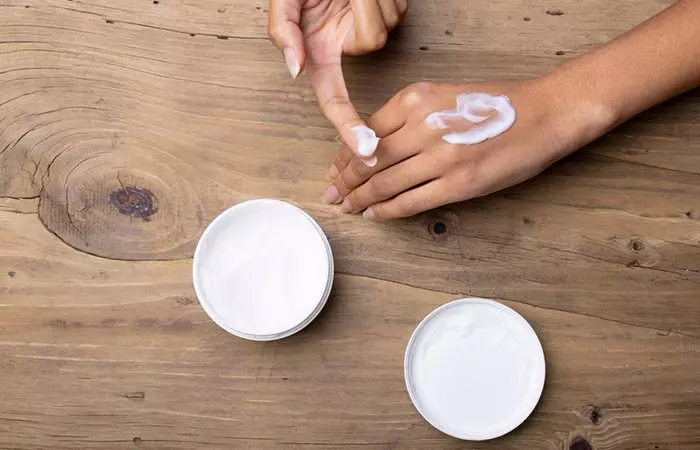
When not the symptom of a more serious condition, dark, dry knuckles are easy to prevent. Moisturizing your hands and applying sunscreen to them regularly can reduce the wear and tear of the skin on your knuckles. Such skin is less likely to develop dark spots.
When Should You Consult A Doctor For Darkened Knuckles?
If the skin on your knuckles is getting darker without any reason, or if the color change occurs suddenly, consult a healthcare professional. Also, if you have any other symptoms, discuss them with your doctor. Darkening skin can be a sign of an underlying condition requiring medical attention.
Infographic: Effective Ways To Lighten Dark Knuckles
While pigmentation and dark patches on the knuckles might be benign, they surely grab our attention and concern. In some cases, they may indicate an underlying medical condition. Nevertheless, there are some ways you can lighten severely dark knuckles. Check out the infographic below for a round-up of the most effective ways to address this issue.
Some thing wrong with infographic shortcode. please verify shortcode syntax
Dark knuckles are quite common and develop due to vitamin B12 deficiency or an underlying medical condition. While it may be tempting to scrub or bleach your knuckles, avoid doing so as it may darken your skin more. Depending on the cause of your dark knuckles, the doctor may recommend medication or diet modification for treatment. You can also opt for natural ingredients in your kitchen such as yogurt, turmeric, or green tea to lighten your knuckles. These remedies can also be helpful if you are trying to get rid of black knees and elbows. You can also try chemical peels and extend your skincare routine to your hands to keep them nourished and healthy. If your knuckles keep getting darker accompanied by other symptoms, make sure you seek medical attention immediately.
Frequently Asked Questions
Which oil is best for dark knuckles?
Mulberry oil is a great choice as it contains Mulberroside F, the active ingredient that inhibits melanin production (10). This helps reduce the appearance of dark knuckles.
Can lemon clear dark knuckles?
Yes. Lemon contains Hesperidin, a flavonoid that inhibits melanin production and helps reduce the darkness of knuckles (11). However, always perform a patch test before using lemon for its skin bleaching and lightening benefits.
Does dark knuckles mean bleaching?
No, you don’t need to bleach dark knuckles. Even though you can use bleaching creams to get lighter knuckles, there are other factors that cause dark knuckles like genetics, sun exposure, and certain medications that cannot be fixed by bleaching alone. Also, bleaching can harm your skin.
Can natural dark knuckles be removed?
Yes, you can lighten dark knuckles naturally. Try exfoliating, moisturizing, or protecting dark knuckles from the sun. However, it is best to consult with a dermatologist to determine the underlying cause and find an appropriate treatment plan.
Are there any cosmetic treatments, such as laser therapy or chemical peels, that can help with dark knuckles?
Yes, dark knuckles can be treated with cosmetic procedures like laser therapy, chemical peels, and microdermabrasion. Laser therapy targets melanin and breaks it down to reduce the appearance of dark knuckles, while chemical peels remove the top layer of skin and promote the growth of new, lighter skin cells. Always consult a dermatologist before making the final decision.
Can I still use makeup or other beauty products on my hands if I have dark knuckles, or will it make them worse?
Yes, you can use makeup and beauty products to improve your dark knuckles as long as they are gentle and non-irritating. Avoid using products with harsh chemicals or ingredients like alcohol and fragrances that can worsen hyperpigmentation. Opt for products formulated for sensitive skin instead.
Illustration: How To Get Rid Of Dark Knuckles
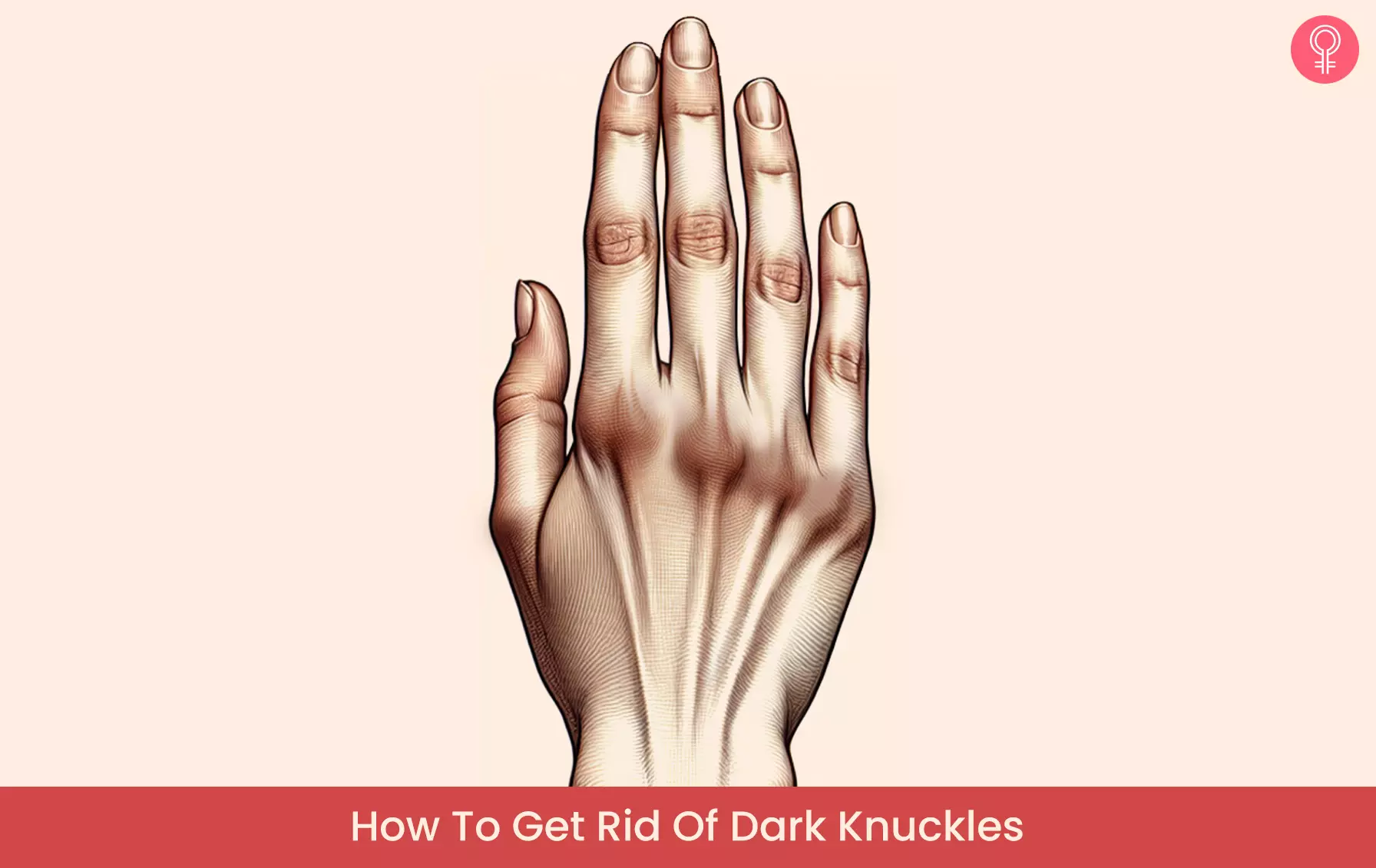
Image: Dall·E/StyleCraze Design Team
Learn how to get rid of dark knuckles with a simple method that works wonders! Watch this video tutorial to improve the appearance of dark knuckles.
Personal Experience: Source
StyleCraze's articles are interwoven with authentic personal narratives that provide depth and resonance to our content. Below are the sources of the personal accounts referenced in this article.
i. I CLEARED MY DARK KNUCKLES IN 7 DAYS 😳!!/ LIGHTEN YOUR DARK KNUCKLES,ELBOWS AND KNEES WITH……https://www.youtube.com/watch?v=8b9LekpEkws
References
Articles on StyleCraze are backed by verified information from peer-reviewed and academic research papers, reputed organizations, research institutions, and medical associations to ensure accuracy and relevance. Read our editorial policy to learn more.
- Acanthosis Nigricans: Overview
https://www.aad.org/public/diseases/a-z/acanthosis-nigricans-overview - Acanthosis Nigricans
https://www.ncbi.nlm.nih.gov/books/NBK431057/ - Prediabetes diagnosis and treatment: A review
https://www.ncbi.nlm.nih.gov/pmc/articles/PMC4360422/ - Diabetes: 12 Warning Signs That Appear On Your Skin
https://www.aad.org/public/diseases/a-z/diabetes-warning-signs - Cutaneous Manifestations of Polycystic Ovary Syndrome: A Cross-Sectional Clinical Study
https://www.ncbi.nlm.nih.gov/pmc/articles/PMC5372429/ - Scleroderma?
https://www.ncbi.nlm.nih.gov/books/NBK537335/ - Hyperpigmentation of Skin
https://www.ncbi.nlm.nih.gov/pmc/articles/PMC2124413/ - Are Natural Ingredients Effective in the Management of Hyperpigmentation? A Systematic Review
https://www.ncbi.nlm.nih.gov/pmc/articles/PMC5843359/ - The Roles of Vitamin C in Skin Health
https://www.ncbi.nlm.nih.gov/pmc/articles/PMC5579659/ - Are Natural Ingredients Effective in the Management of Hyperpigmentation? A Systematic Review
https://www.ncbi.nlm.nih.gov/pmc/articles/PMC5843359/ - Plant-based skin lightening agents: A review
https://www.phytopharmajournal.com/Vol9_Issue1_09.pdf
Read full bio of Dr Ashok Gund
Read full bio of Arshiya Syeda
Read full bio of Ramona Sinha
Read full bio of Monomita Chakraborty







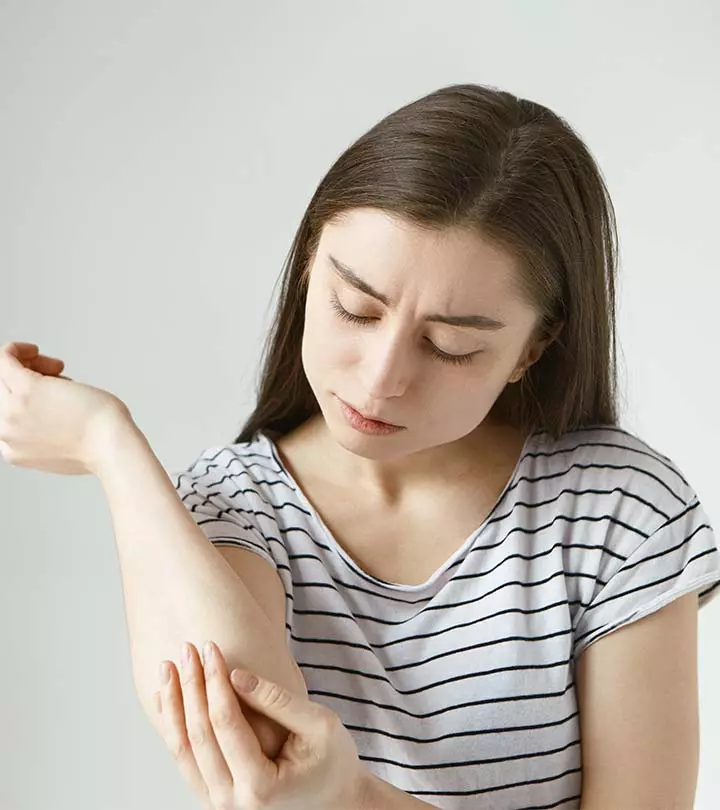
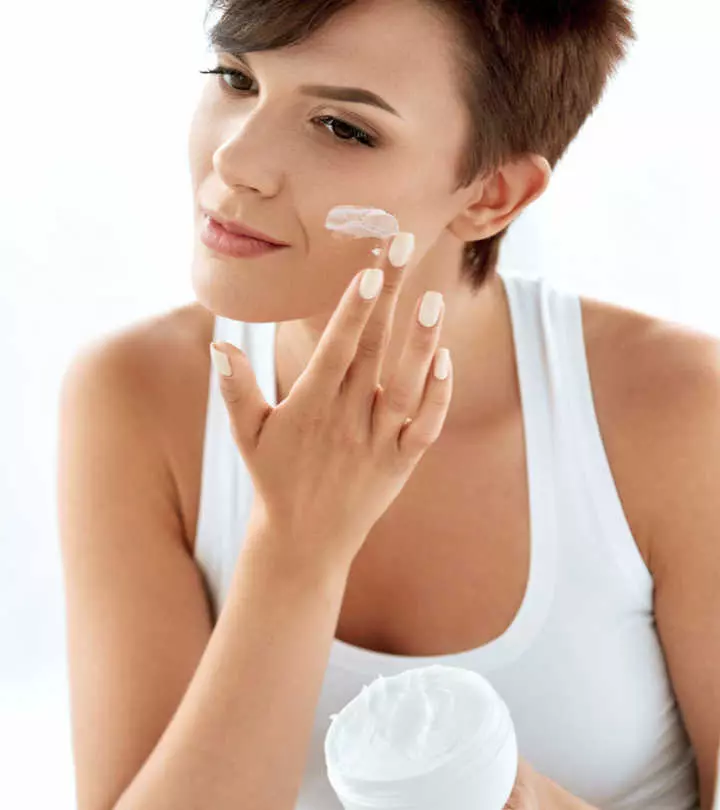
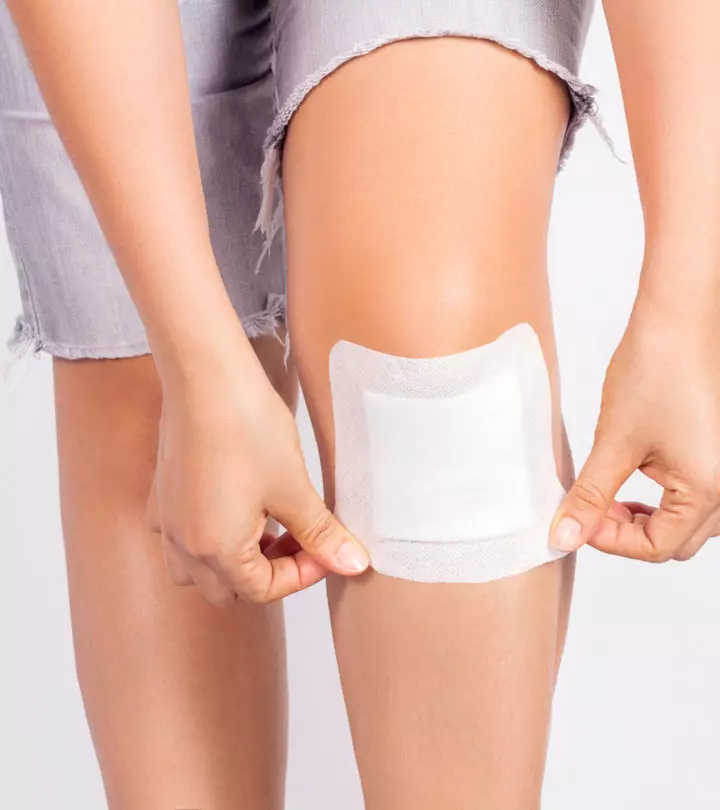
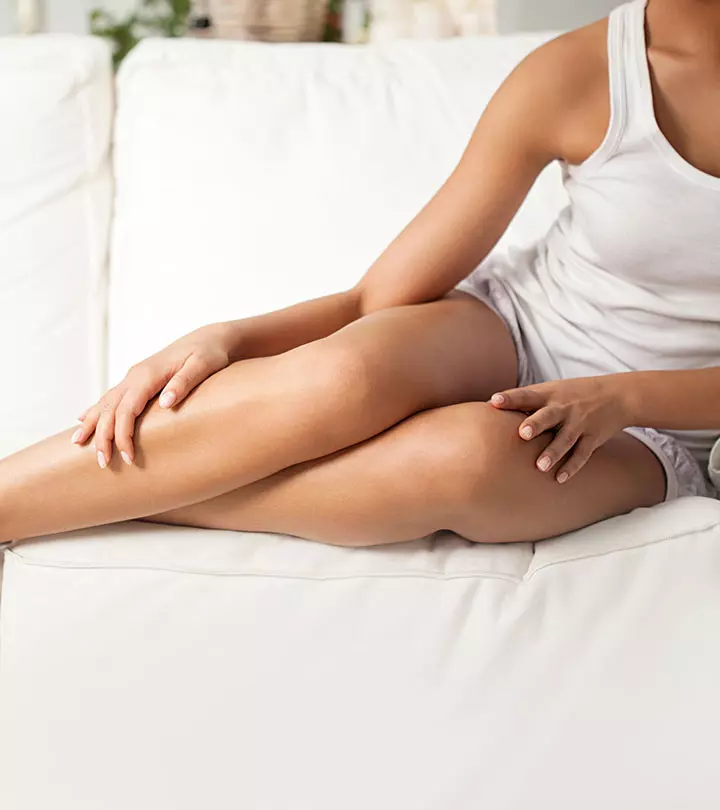
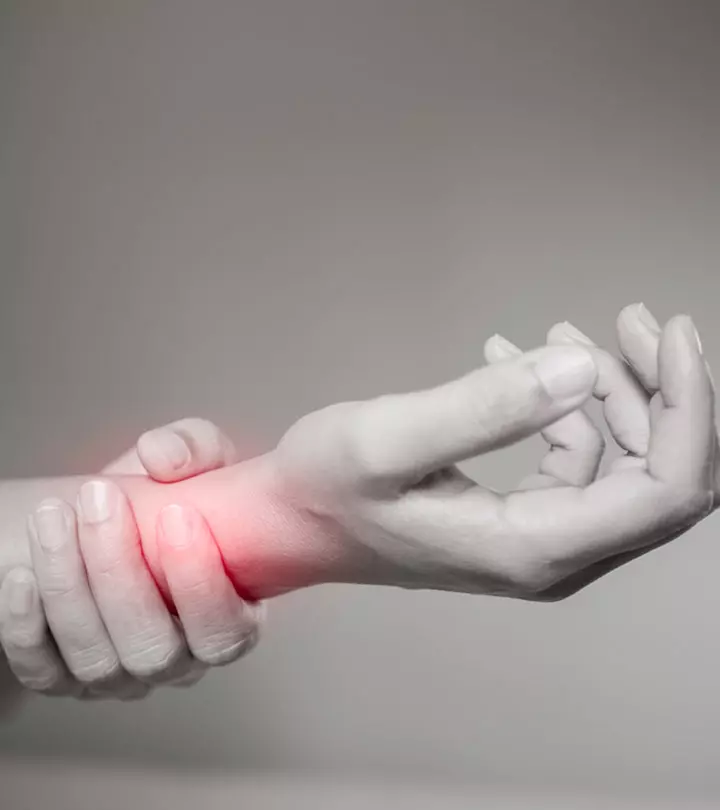
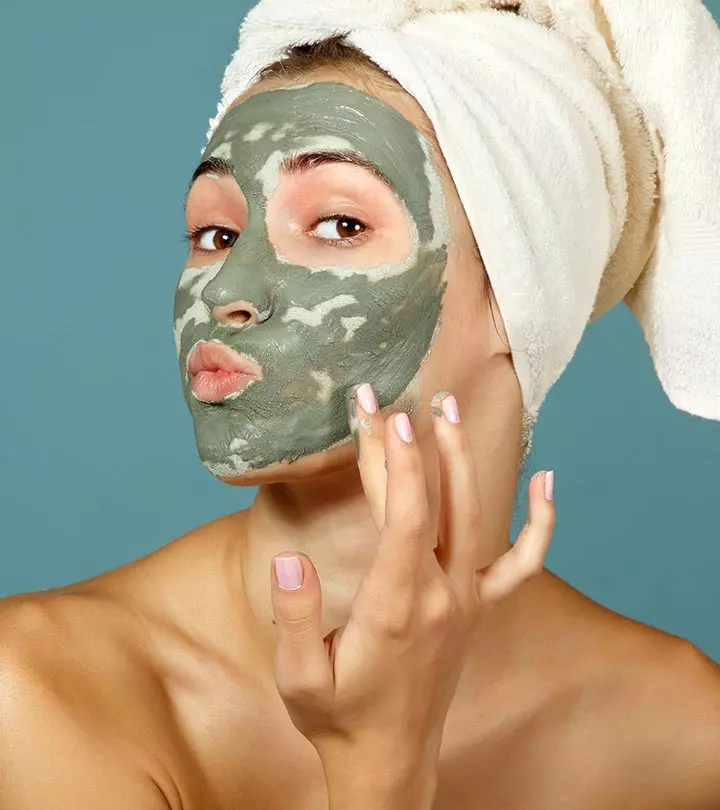
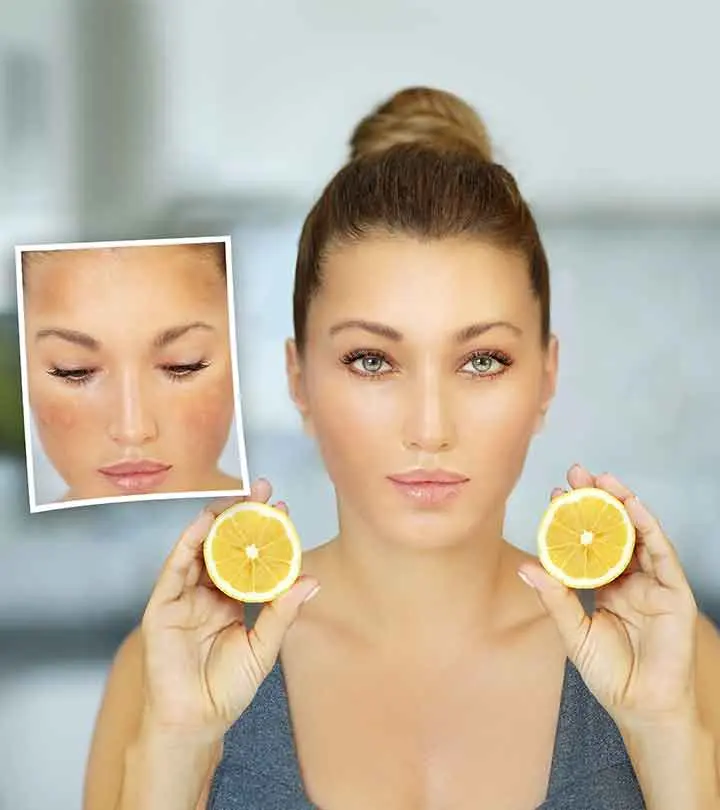

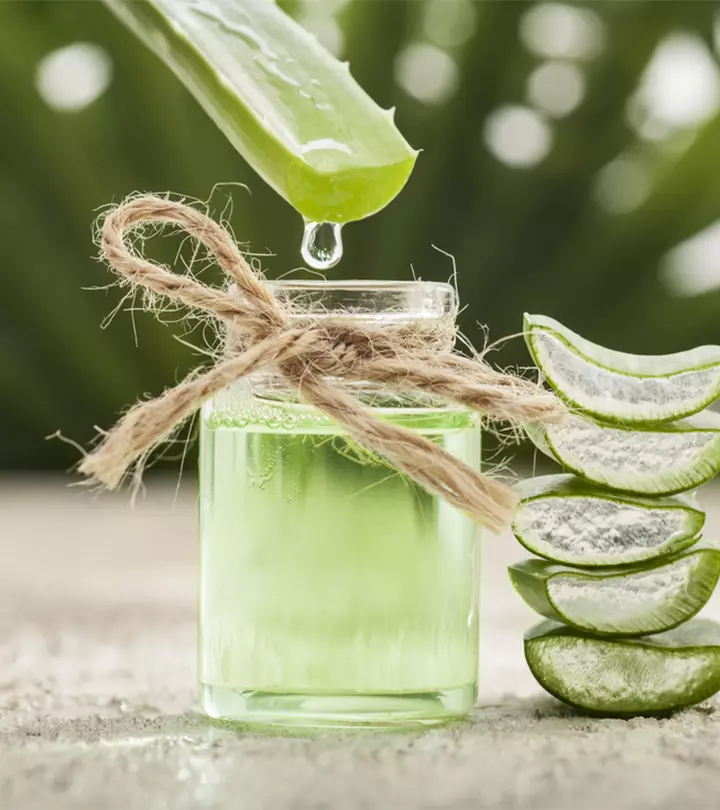
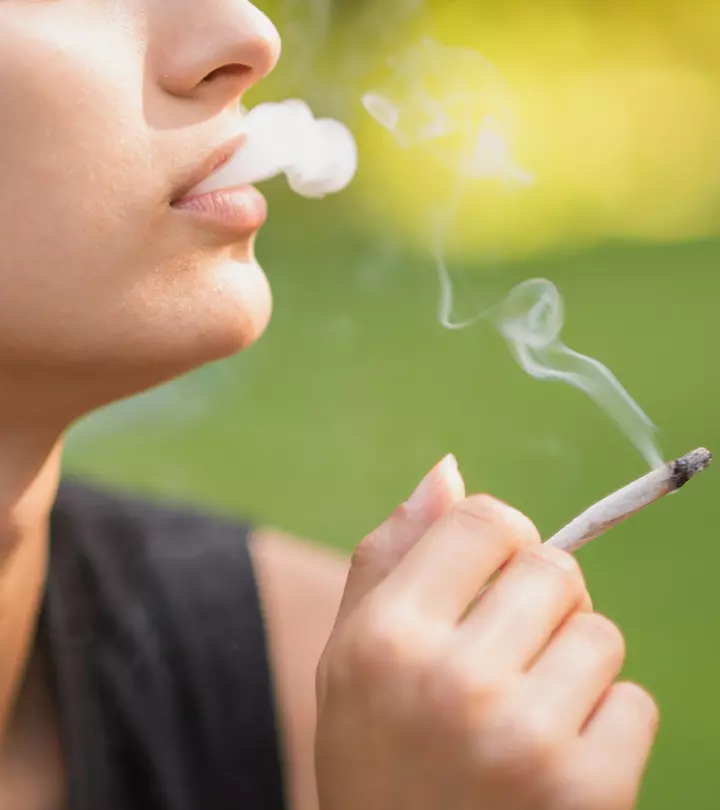
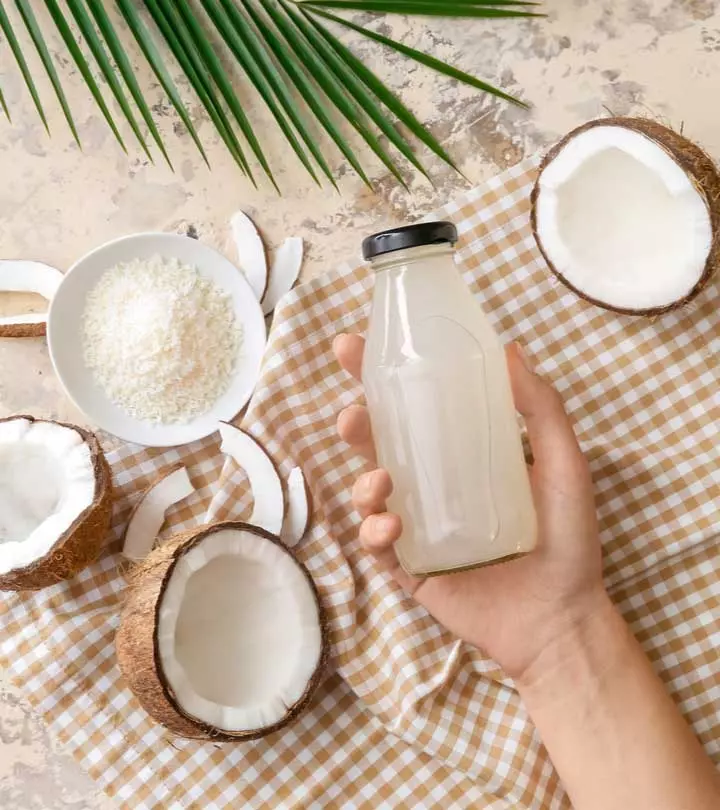
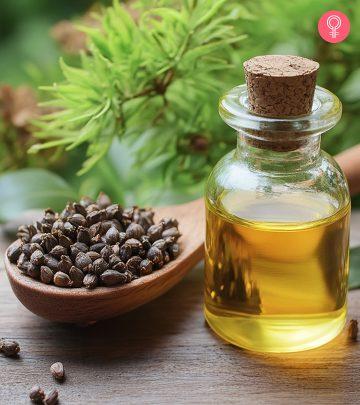

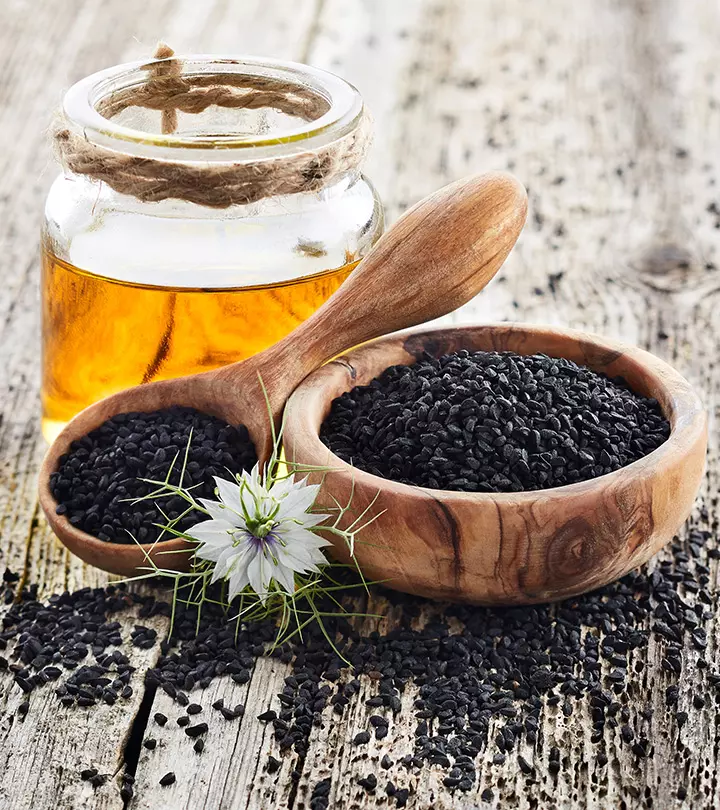
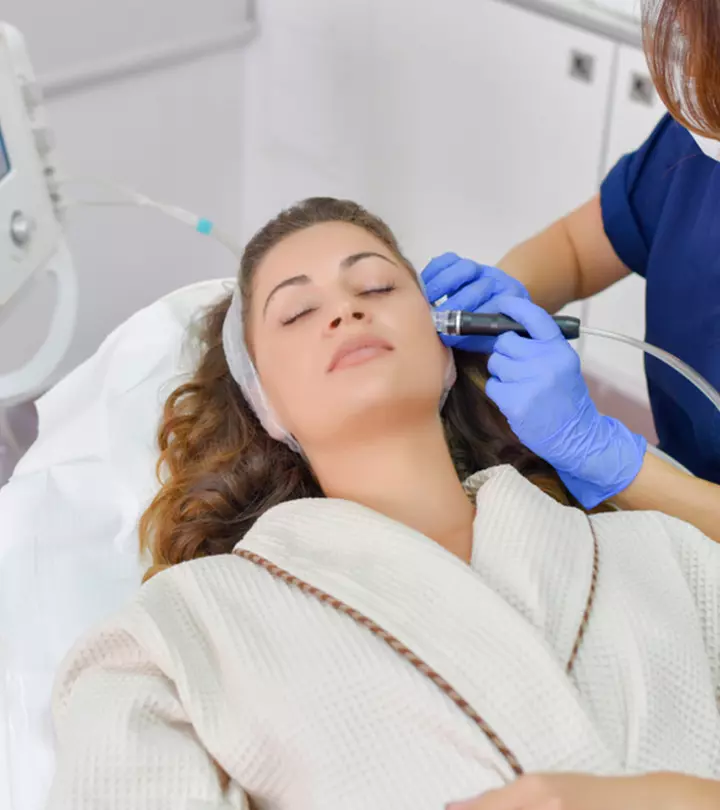
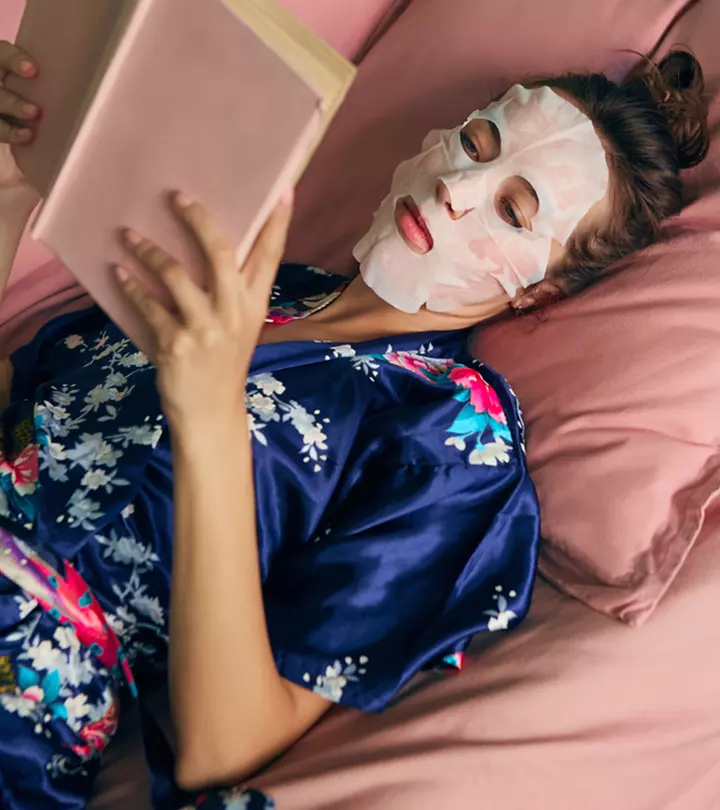
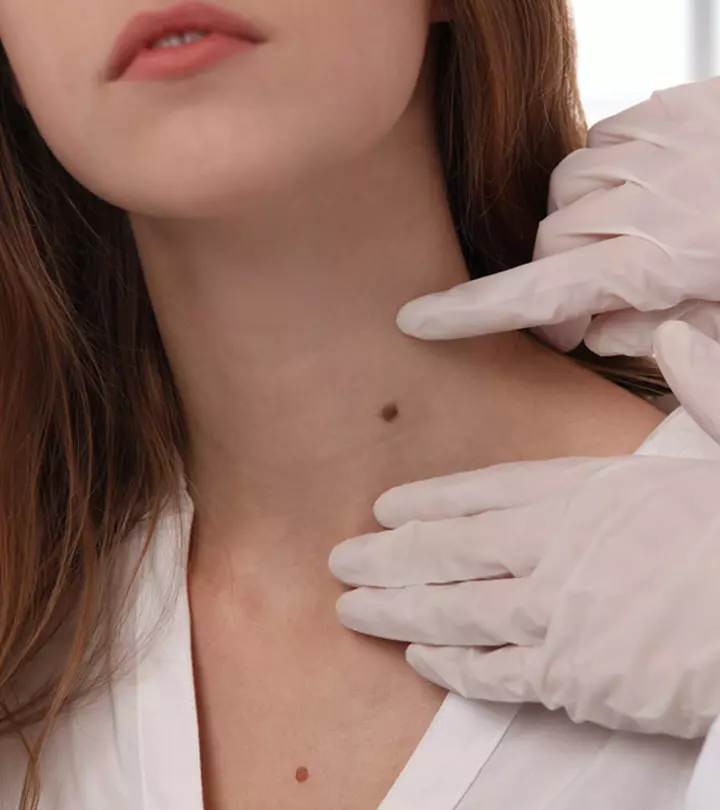
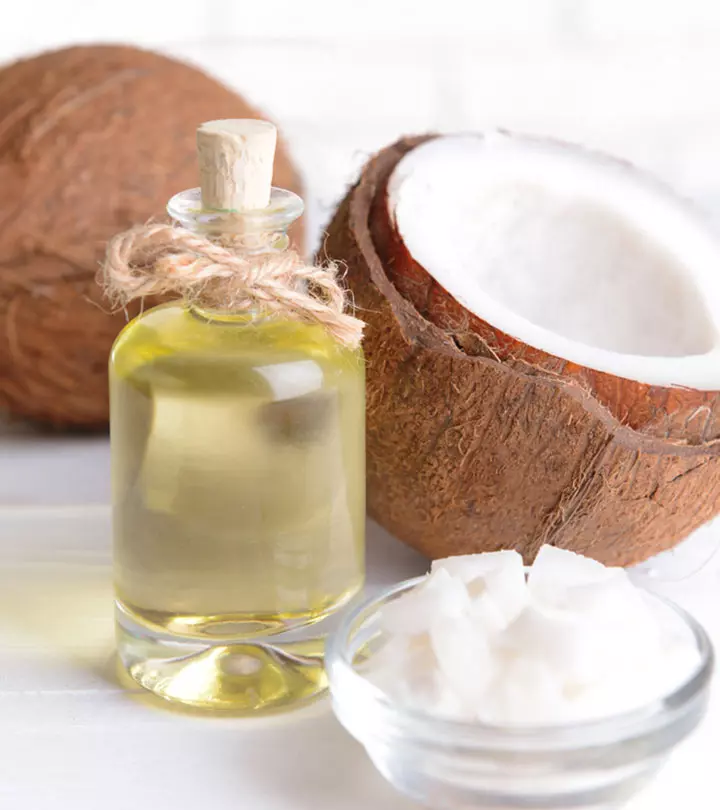
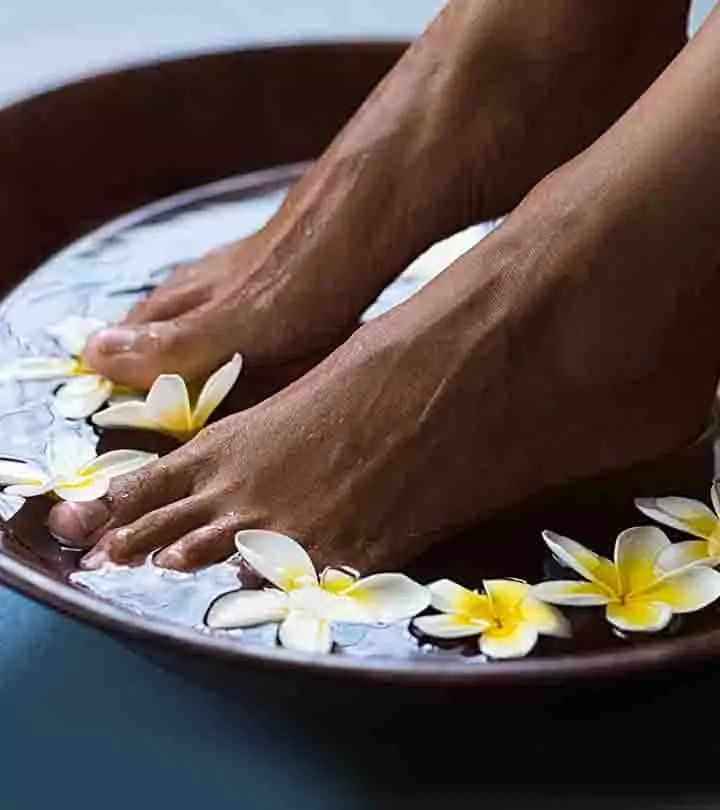
Community Experiences
Join the conversation and become a part of our empowering community! Share your stories, experiences, and insights to connect with other beauty, lifestyle, and health enthusiasts.